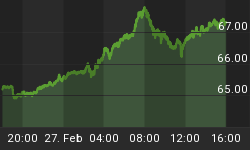Times are quickly changing. But no matter what the situation, if you have a firm grasp of what's going on around you and a little initiative, there's no reason you can't profit from it.
On Monday, General Motors announced that it is going to shut down nine plants and lay off 30,000 workers - all just in time for Christmas. There is talk in the air of GM going bankrupt. I hope not.
There was a time when General Motors represented the might of America. In the 1940's and 1950's it was one of the most innovative companies in the world and was considered a lynchpin of our economy.
An old mantra of the stock market was "where GM goes so goes the country." Stock traders used GM stock as a leading indicator for the economy and the rest of the market. My favorite stock market book, Stan Wanstein's Secrets to Profiting in Bull and Bear Markets, which was written in the 1980's, has a whole section on tracking GM.
People don't think of GM like that anymore. The United States is no longer a leading industrial power. We import most of our goods and are now the world's largest debtor nation. Since George Bush has been President our country has borrowed more money from foreign nations than was borrowed during all of the administrations that came before him combined! Bush didn't create this trend, but he has certainly helped accelerate it.
It's an incredible statistic, but it's true. The old notion of going to work in an industrial plant and earning a middle class standard of living is gone. Where I live, textile plants are shutting down all around me. Those that worked in them are getting jobs in retail for half the pay they had before. The service industry is now what offers jobs.
Now we do have one big import, but unfortunately that import is the US dollar and debt. Even though interest rates have been rising over the past year, the Fed has actually been flooding the economy with so much money that it has more than offset its interest rate increases.
M3 money growth is off the charts:

The Fed controls the money supply in three ways. First, it sets the "reserve requirement" for all banks. The reserve requirement is the amount of money a bank must hold in its reserve (typically its vault or on deposit at other banks) relative to all the money it has lent out. Thus, the Fed can shrink the money supply (known as "tightening") by requiring banks to hold more in reserve, which pulls money out of the system. Of course, Fed governors can also expand the supply (known as "loosening") by lowering reserve requirements.
The second way the Fed controls the money supply is through the buying and selling of Treasury bills and notes. When the Fed sells a T-Bill, it's taking money out of the system and replacing it with a security, which isn't counted in money supply - and vice versa when the Fed buys back bills and notes.
Finally, the Fed moderates the money supply through raising or lowering interest rates. The Fed sets the federal funds rate, the rate that banks charge each other for overnight borrowing, and the discount rate, which is the rate the Fed charges banks to borrow from it. Banks pass on the changes in these rates by adjusting their lending and borrow rates accordingly. Rising rates tend to tighten money supply by discouraging use of money for spending. The opposite is true for falling rates.
The supply of money in the economy is growing in the face of interest rate increases because the Fed is lowering bank reserve requirements and buying up treasury bills to help keep the wheels of the debt engine running. Everyone knows that debt and credit are everywhere these days. Banks are lending out money like mad thanks to the Fed.
The Fed is cheapening the dollar and helping fuel inflation through this increase in the money supply. Inflation is caused by too much money in the economy much more than it is by too much demand. It isn't China's fault that the goods on the grocery store shelves are going up, it's the fault of the Federal Reserve.
We live in an inflationary environment and it's only going to get worse when Ben Bernanke becomes the Fed Chairman and eventually puts an end to the current cycle of interest rates. You can expect him to raise rates one last time in January just to give himself some inflation fighting credibility and then after that - no more rate hikes.
And those rate hikes are what has put a bid under the dollar all year. When the Fed stops raising rates the dollar is going to crack. Gold is already starting to rally up into this inevitability.
Two weeks ago the Fed announced that it is going to cease the release of its money supply figures. It apparently feels that it is going to have to keep those numbers secret from us.
It doesn't matter. We know what it is going to do. It is going to print more money! Bernanke has promised to "throw money out of helicopters" if the economy slows down and I believe him. Money and debt are our country's greatest exports right now and will continue to be so as long as foreigners continue to lend us money without question.
That is why I feel good about my gold position right now. Let the Fed inflate. I can't stop it. I can't stop prices from rising. But I sure can profit from inflation by being in the right stock sectors. By buying and holding gold stocks. And boy when they move they really move.
To find out what gold stocks Mike Swanson holds and plans on buying subscribe to his free Weekly Gold Report at http://wallstreetwindow.com/weeklygold.htm















